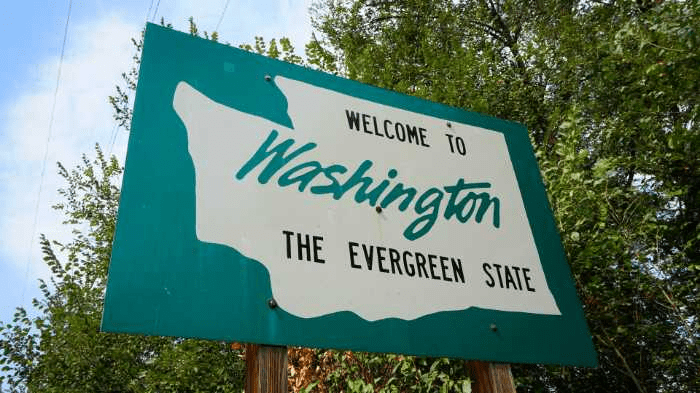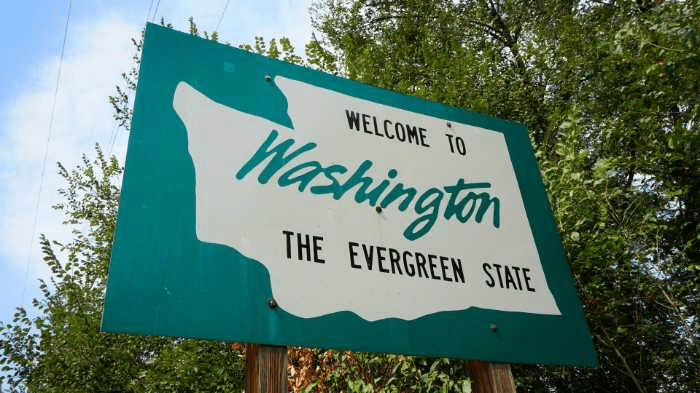
As a small or medium-sized business owner in Washington, you may be wondering if it’s worth your time to invest in ESG and sustainability measures. After all, you have a lot on your plate as it is! But the truth is, there are many reasons why embracing ESG can be helpful for businesses of all sizes. In this post, we’ll explore some of the key benefits of ESG and sustainability for small and medium companies in Washington. So read on to find out more, you may be surprised at just how much value these practices can offer.
- What is ESG and sustainability for small and medium companies in Washington?
- How do ESG factors impact a company’s financial performance?
- What are some of the most common ESG risks faced by companies in Washington today?
- What is ESG investing and why should you care?
- What are some tips for implementing sustainable business practices in your company?
- How can businesses benefit from sustainability measures?
- How can you report on your company’s ESG performance to consumers, investors, and stakeholders?
- Is Washington sustainable?
- FAQs
What is ESG and sustainability for small and medium companies in Washington?
Grounded in the principles of environmental, social, and governance (ESG), sustainability is a holistic approach to business that takes into account the needs of all stakeholders. For small and medium companies in Washington State, sustainability means creating value for shareholders while also protecting and enhancing the state’s natural resources.
In order for a company to be sustainable, it must balance three key pillars: environmental conservation, social progression, and economic growth.
The “environmental” pillar refers to a company’s efforts to reduce its carbon footprint (greenhouse gas emissions) and protect natural resources. The “social” pillar encompasses a company’s commitment to diversity & inclusion, employee well-being, and community engagement. The “governance” pillar covers a company’s ethical practices, Board structure & oversight, and leadership accountability.
By taking a sustainable approach to business, small and medium companies in Washington can improve their bottom line while also creating long-term value for all stakeholders.
Is ESG reporting mandatory in the US?

While ESG reporting is not currently mandatory in the United States, this is likely to change in the future. The Securities and Exchange Commission has proposed climate risk disclosure requirements for all public companies, and it is only a matter of time before these requirements are extended to private companies as well. In the meantime, many investors are beginning to consider ESG factors in order to make informed investment decisions, and some companies are voluntarily disclosing their ESG performance.
As pressure grows for companies to be more transparent about their environmental and social impacts, it is likely that ESG reporting will become the norm in the United States in the coming years. For small and medium enterprises in the state of Washington, it is important to stay ahead of this trend and begin thinking about how to report on your ESG performance.
How do ESG factors impact a company’s financial performance?
ESG factors have become increasingly important to businesses and their financial performance for a few reasons.
First, consumers, clients, and investors are increasingly interested in buying from and supporting companies that are environmentally and socially responsible. This is especially true of young people and millennials.
Second, businesses that focus on sustainable development often find that they can save money in the long run by becoming more transparent and efficient.
Finally, ESG factors can have a direct impact on a company’s bottom line. For example, if a company pollutes a river, it may have to pay hefty fines. In contrast, a company that invests in renewable energy may be eligible for government incentives.
In short, ESG factors can have a significant impact on a company’s financial performance. Businesses that take these factors into account are often more successful in the long term than those that do not.
What are some of the most common ESG risks faced by companies in Washington today?
As a business owner in Washington, you face a unique set of risks when it comes to environmental, social, and governance (ESG) issues. Here are five of the most common risks small and medium companies in Washington state are facing today:
1. Environmental risks
Washington is home to a diverse range of ecosystems, from rainforests to deserts. This means that businesses operating in the state need to be aware of the potential impacts of their activities on the environment. Common environmental risks include air pollution, water contamination, climate change, and habitat destruction.
While environmental risks can have a significant impact on your business, it is essential for small and medium businesses to educate themselves about environmental risks and develop strategies for mitigating those risks. The Environmental Protection Agency in Washington offers a variety of resources to help small and medium businesses understand and comply with environmental regulations, and there are also numerous private firms that specialize in environmental risk management.
You can’t improve what you don’t measure.
Free Verified Carbon Calculators.
Erase Your Carbon Footprint in less than 5 Minutes
Personal Carbon Footprint Calculator
Business Carbon Footprint Calculator
2. Social risks
Social risks can arise from a variety of sources, including employees, customers, and the community at large. In Washington, some of the most common social risks include discrimination and harassment, workplace safety, human rights violations, and data privacy.
To cope with these risks, companies can put into place policies and procedures to help protect their employees, customers, and data. They can also provide training to employees on how to identify and deal with potential social risks.
3. Governance risks
Corporate governance is essential for any business, but it can be especially challenging for small and medium-sized businesses (SMBs). In Washington, SMBs may face challenges such as access to capital, regulatory compliance, and succession planning.
However, there are a number of ways that SMBs can overcome these challenges. One way is to form strategic partnerships with other businesses or organizations. This can help SMBs pool resources and knowledge, and it can also make it easier to navigate the regulatory landscape. Another way to overcome governance risks is to invest in robust management systems and processes. This can help SMBs ensure compliance with regulations and keep track of important data and documents. Finally, succession planning is crucial for any business, but it can be especially difficult for SMBs. One way to address this challenge is to develop a clear plan for how the business will be transferred to the next generation of owners or leaders.
4. Economic risks
The state of the economy can have a significant impact on businesses of all sizes. In Washington, businesses may be impacted by global economic trends as well as local factors such as the cost of living and unemployment rates.
There are a number of ways that small and medium businesses in Washington can cope with economic risks. One way is to diversify their customer base. By selling to customers in different industries or geographic areas, businesses can reduce their reliance on any one market. Another way to cope with economic risks is to have a strong cash reserve. This can help businesses weather short-term dips in revenue and keep them afloat during difficult times. Finally, it is important for businesses to continuously monitor their expenses and look for ways to reduce costs.
5. Reputational risks
Your company’s reputation is one of its most valuable assets. In Washington, reputational risks can arise from a variety of sources, including negative media coverage, social media, and customer complaints.
To protect their reputation, small and medium companies in Washington should have a plan in place to quickly and effectively respond to negative coverage, customer complaints, and other threats. They should also proactively monitor their online presence and work to build positive relationships with key stakeholders.
How Sustainable is Your State?
AL | AK | AZ | AR | CA | CO | CT | DE | FL | GA | HI | ID | IL | IN | IA | KS | KY | LA | ME | MD | MA |MI | MN | MS | MO | MT | NC | NE | NV | NH | NJ | NM | NY | NC | ND | OH | OK | OR | PA | RI | SC | SD | TN | TX | UT | VT | VA | WA | WV | WI | WY
What is ESG investing and why should you care?
ESG investing is a type of socially responsible investing that takes into account environmental, social, and governance factors when making investment decisions. ESG investing has been gaining popularity in recent years as more asset managers and institutional investors have incorporated ESG criteria into their investment decision-making processes.
While there is no one-size-fits-all approach to ESG investing, many investment managers use a combination of audited financial statements, stakeholder engagement, and sustainable investing strategies to enable investors to achieve their desired return while also keeping the ESG principles intact.
Small and medium enterprises in the great state of Washington can benefit from ESG investing by working with an investment manager who takes into account their specific business goals and values. ESG investing can help businesses to mitigate risk, identify opportunities for growth, and make a positive impact on society. In addition, responsible investments can help businesses attract and retain employees, customers, and other stakeholders who are interested in supporting companies that are aligned with their personal values.
What are some tips for implementing sustainable business practices in your company?

Small and medium enterprises (SMEs) in the state of Washington are increasingly looking to implement sustainable business practices. There are a number of reasons for this, including reducing operating costs, improving employee morale, and meeting customer demands. Fortunately, there are a number of resources available to help businesses get started. The following are some tips for implementing sustainable business practices in your business:
- Educate yourself and your employees about sustainability. This can be done through online resources, books, or seminars. It is important that everyone in the organization is on the same page when it comes to sustainability goals.
- Conduct a comprehensive audit of your business operations. This helps identify areas where improvements are required in your sustainability practices. You may want to engage an external consultant to help with this process.
- Set realistic goals for your business. Once you have identified areas where you can improve, set specific targets that you can strive to achieve. Remember that sustainability is a journey, not a destination, so be prepared to adjust your goals as you learn and grow.
- Implement changes gradually. Sustainability is often about making small changes that add up over time. Try to pilot new initiatives before rolling them out company-wide. And involve employees in the process so they can provide input and buy-in.
- Evaluate your progress regularly. Make sure to track your progress toward your sustainability goals so you can see what is working and what needs improvement. This data can also be used to communicate your successes to stakeholders such as investors, customers, and employees.
How can businesses benefit from sustainability measures?

A recent study found that nearly 60% of consumers in the state of Washington say they would pay more for goods and services from companies that are environmentally and socially responsible. Furthermore, 70% of respondents said they would recommend such companies to friends and family. This suggests that there is a growing demand for sustainable businesses in the state of Washington.
There are several ways that small and medium businesses can benefit from embracing ESG (environmental, social, and governance) and sustainability measures.
It can help to boost brand awareness and reputation. In the age of social media, customers are increasingly interested in supporting businesses that align with their values.
Sustainability measures can also help businesses save money in the long run by reducing energy consumption and waste.
Finally, sustainable businesses often have an easier time attracting and retaining top talent.
With the right strategies in place, embracing sustainability can be a major competitive advantage for small and medium businesses in the state of Washington.
How can you report on your company’s ESG performance to consumers, investors, and stakeholders?
Businesses across the globe are under increased pressure to disclose their ESG performance. Consumers, investors, and other stakeholders are increasingly interested in knowing how companies are impacting society and the environment. As a result, many businesses adopt increasing transparency around their ESG efforts.
There are a number of ways that businesses can report on their ESG performance. One is to simply provide more information in their annual reports and other disclosures. This can include information on specific ESG strategies and initiatives, as well as data on investment performance. Another option is to obtain an ESG rating from a third-party rating agency. This can provide an independent assessment of a company’s ESG issues and help to improve transparency around its efforts.
Ultimately, it is up to business leaders to decide how best to report on their company’s ESG policies However, as pressure increases for greater transparency, it is becoming increasingly important for businesses to develop robust ESG reporting frameworks.
Is Washington sustainable?

Though Washington State has been working hard to increase its sustainability in recent years, there is still room for improvement if the state wants to reach its emissions goals. As of 2018, Washington’s emissions were just under 100 million metric tons of CO2e. Though this is a 1.3% increase from the previous year, it’s not enough to reach the state’s target of reducing emissions by 45% below 1990 levels by 2030 and achieving net zero emissions by 2050. In order to achieve this goal, Washington will need to make some changes. One way to do this is by increasing the amount of renewable energy used. Seattle, for example, produces almost 100% of its electricity from hydropower. If other cities in Washington could follow suit, it would make a significant dent in the state’s emissions. Another way to reduce emissions is to encourage businesses to adopt sustainable practices. This could include anything from upcycling to wastewater management and responsible water use. If Washington can continue working towards these goals, it will be well on its way to becoming a more sustainable state.
Conclusion
If you are a business owner or are operating a business in Seattle, Spokane, Tacoma, Vancouver, Bellevue, Everett, Kent, Yakima, Renton, Spokane Valley, Federal Way, Bellingham, Kennewick, Auburn, Marysville, Pasco, Lakewood, Redmond, Shoreline, Kirkland, Richland, or Olympia then its crucial for you to ensure a good reputation of your company. By incorporating proper ESG measures in your business operations and implying complete transparency with consumers, clients, and stakeholders, you can gain a loyal customer base, better opportunities for striking contracts and securing financing, enhanced workplace efficiency, improved employee retention rate, and a competitive advantage in the market. If you have any confusion about ESG and sustainability or just want to be well aware of these terms to use them at work or elsewhere, download the ESG checklist!
FAQs

What are the 3 pillars of ESG investing?
The three pillars of ESG investing are environmental investing, socially responsible investing, and governance investing. Environmental investing focuses on companies that have a positive impact on the environment, such as renewable energy companies. Socially responsible investing focuses on companies that have a positive social impact, such as companies that are committed to diversity and inclusion. Governance investing focuses on companies that have good corporate governance, such as companies with strong investor protections.
Can ESG investments benefit small and medium companies?
ESG investments can benefit small and medium companies, but large companies usually take the bigger chunk. This is because smaller companies often have less data to share with investors and may not have the same resources to devote to ESG initiatives. However, it is still possible for small and medium companies to receive some benefits from ESG investments if they are able to make a compelling case to investors. In the end, it will come down to each individual company and whether or not they are able to capitalize on this opportunity.
How can a small company in Washington design its ESG strategy?
There are a number of ways that small and medium enterprises in Washington can design their ESG strategy. Some small and medium companies choose to use ESG reporting to communicate their progress on environmental, social, and governance issues to consumers, investors, and other stakeholders. Others conduct ESG analysis to identify opportunities and risks associated with climate change, natural disasters, and other sustainability issues. Additionally, many companies are beginning to incorporate ESG data into their investment decision-making processes, as ESG investment opportunities can provide both financial and social benefits. No matter what approach is taken, it is important for companies to consider how they can integrate sustainability into their business operations in order to achieve sustainable development goals.
Where does Washington State rank in sustainability among all US states?
Washington State is ranked 3rd in sustainability among all US states with a score of 58.15. Vermont is at the top with 60.38, followed by Massachusetts with 58.80. Washington’s strong showing is due in part to its effective environmental regulations and its commitment to renewable energy. The state has also made significant progress in reducing its greenhouse gas emissions, and it continues to invest in clean technology and green infrastructure. These efforts have placed Washington at the forefront of sustainable development, and they provide a roadmap for other states to follow.
How many small companies reside in Washington?
There are 647,639 small businesses in Washington State that employ over 1.4 million people, and they make up 99.5% of the state’s total businesses.

Dean Emerick is a curator on sustainability issues with ESG The Report, an online resource for SMEs and Investment professionals focusing on ESG principles. Their primary goal is to help middle-market companies automate Impact Reporting with ESG Software. Leveraging the power of AI, machine learning, and AWS to transition to a sustainable business model. Serving clients in the United States, Canada, UK, Europe, and the global community. If you want to get started, don’t forget to Get the Checklist! ✅
